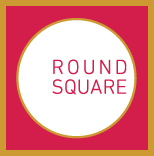Poetry
Feelings that are hard to express may come to life much more easily in poetry. Words can be the most peaceful protest and the most powerful weapon any of us possess. The greatest poets not only change the way we see the world but also cause us to question our perception and interpretation of everyday reality.
Poetry makes us think, gives voice to our feelings, connects us with the ideas and emotions of others and builds empathy for their experiences. In this way poetry can be a powerful force in drawing our attention to some of the deepest social and political issues of our time.
With the four questions in mind, browse the following articles and short films and consider how you would respond to those questions in the context of poetry:
Read:
Poems of Protest, Resistance, and Empowerment
Pithy and powerful, poetry is a popular art form at protests and rallies. From the civil rights and women’s liberation movements to Black Lives Matter, poetry is commanding enough to gather crowds in a city square and compact enough to demand attention on social media. This selection of poems calls out and talks back to the inhumane forces that threaten from above. Here>
A tribute to modern Indian poets who were agents of social transformation
India has a long history of poets who have risen up against social and political oppression and have brought in change at the grass-root level. This article presents poets from the Indian subcontinent who stood up to their beliefs and wrote for peace, change, rights, and revolution, and explores how art and society can impact each other. Here>
Can Poetry Change the World? – Melanie Robinson
Poets are no strangers to gathering in large groups and discussing issues plaguing our society, but the question asked in this article is whether these mobs of creative energy bring about any real change? Here>
These Indian spoken word poets are using their art as tools for change
In this article Sabrina de Souza, Advocacy Manager at Malala Fund presents performances by three female poets on girls’ education and gender equality in India. Here>
The Power of Poetry during a Pandemic – Anna Delamerced
As we collectively face difficult and challenging times, people are turning to new or rarely used modes of thinking and expression: creative acts like poetry. As we all stay at home under lockdown, words have taken on new meaning and importance, says Anna Delamerced as she explores in this article why poetry is so important, now more than ever. Here>
Watch
We Can All Bend Reality – Sean Hill
Sean Hill is an award winning humanitarian & multidisciplinary artist. He has helped build two gender equal schools in Malawi, Africa and Dhangadhi, Nepal with other poets, actors, and artists who deeply care about global education. In this TEDx experience, Sean emphasizes that self expression through spoken word poetry is fun & life affirming: In a world where depression, suicide, indecision, apathy, corruption in family or government, wars inside & out exist…it’s time, he says, to take our words & how they connect to our actions more seriously…and more imaginatively.
Art as activism – Marcus Ellsworth
Marcus Ellsworth is a spoken word artist and emcee working in the Chattanooga area. He hosts and organizes Wide Open Floor, a monthly open mic performance art showcase at Barking Legs Theatre. He is also the president of Tennessee Valley Pride and co-chair for Tennessee Equality Project’s Hamilton and Bradley County Committee.
Man vs Earth – Poem by Prince EA
Richard Williams, better known as Prince Ea, who has over 5.5million followers on YouTube where he describes himself as ‘ a Rapper, spoken word artist and rights activist, whose aim it is to make people laugh, cry, think and love, with the ultimate goal to evolve’. This poem is entitled Man vs Earth.
I’m a Rainbow in Somebody’s Cloud – Maya Angelou
Maya Angelou was an American poet, singer, memoirist, and civil rights activist. She published seven autobiographies, three books of essays, several books of poetry, and is credited with a list of plays, movies, and television shows spanning over 50 years.
I use my poetry to confront the violence against women – Elizabeth Acevedo
Elizabeth Acevedo was born and raised in New York City and her poetry is infused with her Dominican parents’ bolero and her beloved city’s tough grit. Acevedo is a National Slam Champion, Beltway Grand Slam Champion, and 2014 Women of the World Poetry Slam representative for Washington, D.C, where she lives and works.
A powerful poem about what it feels like to be transgender – Lee Mokobe
“I was the mystery of an anatomy, a question asked but not answered,” says poet Lee Mokobe in this gripping and poetic exploration of identity and transition. It’s a thoughtful reflection on bodies, and the meanings poured into them.
We Can Be More – a 13-year-old poet’s campaign to save the world – Solli Raphael
13-year-old poet, Solli Raphael asks “what kind of human are you, what kind am I?” Solli’s unique and emotive poetry aims to explore human action towards environmental sustainability. Embracing ideas to encourage less landfill waste and man-made pollution, Solli’s poem hopes to bring people together on a “We Can be More” mini campaign in his 3-minute fight to save the world.
Let’s change the world one poem at a time – Dorothy Oger
After losing a friend in the terrorist attacks on Brussel, poet Dorothy Oger decided to answer this act of violence with a poem; “I shall stand for love”. Beyond her expectations the poem got translated in over 50 languages and was used all over the world. So, can a poem change the word? Dorothy explains why she thinks it can.
